One of the things that every audiophile or enthusiast hates is a record player that sounds distorted while playing vinyl records. To be honest, I have experienced this myself while playing some of my LPs, and I don’t like it either.
There are multiple reasons you may hear distorted or degraded sound. Sometimes, it could be due to a dirty or faulty stylus or incorrect cartridge alignment. Sometimes, the issue is not the record player but a damaged vinyl record.
So, without wasting more minutes, let’s get directly to the various common issues causing the distortion in sound and their fixes.
Dirty Stylus (needle) problem
Cleaning your dirty stylus is one of the most straightforward and obvious fixes.
The function of the needle (or stylus, to be more accurate) is to track the record grooves and pick up the vibrations that are later converted into electrical signals.
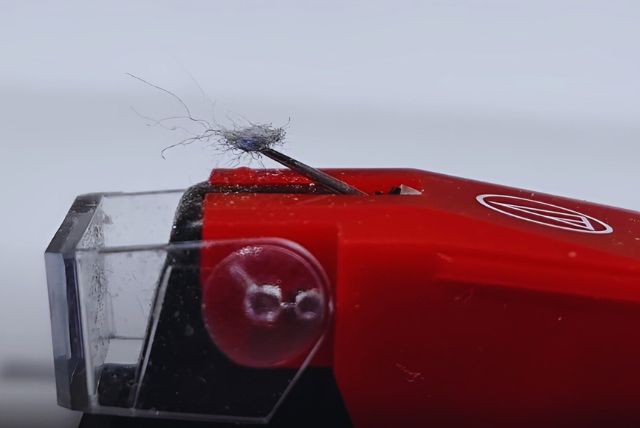
Over time, with more frequent playing, your record player’s stylus tip sticks dust and debris while tracking the grooves. The added dirt makes it difficult for the stylus to track grooves properly, thus causing distortion in sound.
The chances of the stylus tip accumulating dirt and debris increase when you play old or used records quite often. Hence, cleaning your stylus at least once a week and keeping it dirt-free will reduce the chances of distortion in sound and will also increase the lifespan of the stylus.
Here is a guide to help you clean your dirty stylus.
Also, keeping your records clean is equally important as keeping your stylus clean. Hence, here is a guide to efficiently clean your record collection. Cheers!
Stylus needs replacement
Everything has a lifespan, and so does your turntable stylus. Even after cleaning it every week and keeping your records clean, you must replace it occasionally.
A diamond stylus lasts 400-1000 hours, whereas a sapphire stylus lasts 40 -100 hours. Hence, a diamond stylus will always last longer than a cheaper sapphire.
A stylus made of diamond (the hardest substance on earth) still has to travel the length of the record (almost 1500 feet on both sides of an LP). Considering this, surely the tip will wear out at some point and affect the sound quality.
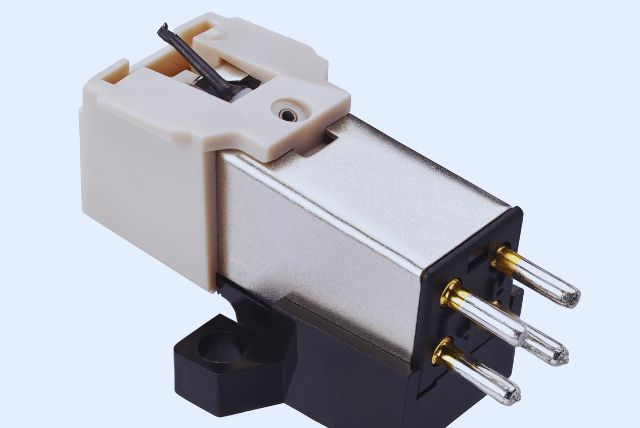
To check if your stylus is worn-out, take a magnifying glass and look for any signs of wear and tear. If you find any, it’s time to order a new stylus and replace the old one.
If not replaced on time, a worn-out stylus degrades the audio and damages the records. It is highly advisable to replace the turntable stylus once a year to minimize the chance of distortion and damage.
Here is a guide on maintaining your stylus to make it easier for you.
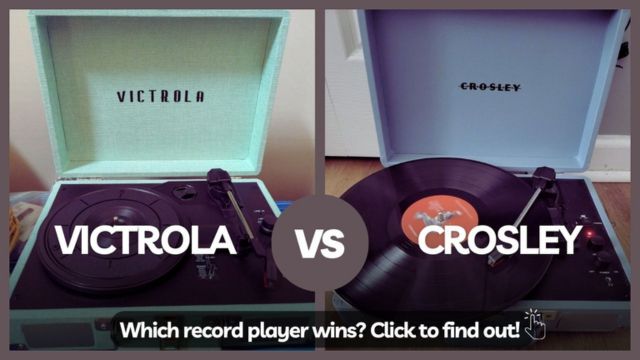
Damaged or badly pressed records
Sometimes, the problem is not with the stylus but with the vinyl record itself. A record that is played extensively gets groove wears over time no matter how well it is maintained.
To check if the problem lies with the vinyl record, try playing and swapping 3-4 records and check if the distortion is limited to one or two records.
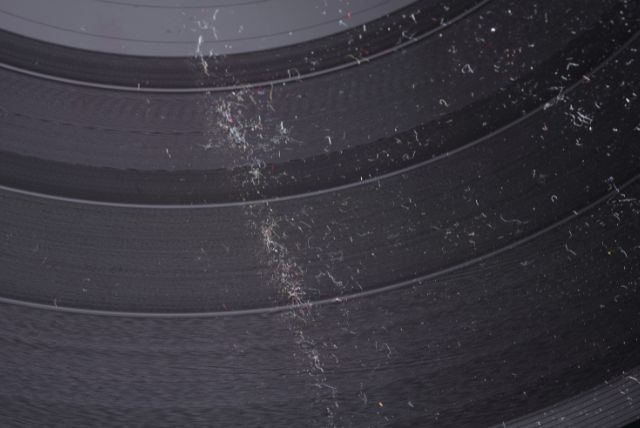
While cleaning can restore sound quality by removing dust and debris, no amount of cleaning can fix a scratched or damaged record and restore its audio quality.
Also, in some cases, even a new record can be an issue due to incorrect pressing and mastering. If the parameters and proper calculations are not considered while mastering and cutting the record, the result may be a issues with sound.
An experienced mastering engineer knows how to create an excellent vinyl record.
Incorrect cartridge alignment
If you are still wondering, why does my record player sound distorted? It could be because of an incorrect cartridge alignment on your turntable.
If you own an all-in-one record player, you don’t have to worry about aligning the cartridge. It will come preinstalled, and you can right away play your vinyl records.
The real issue arises when you order a turntable that needs additional components (such as external amplifiers and speakers) and requires you to install a cartridge.
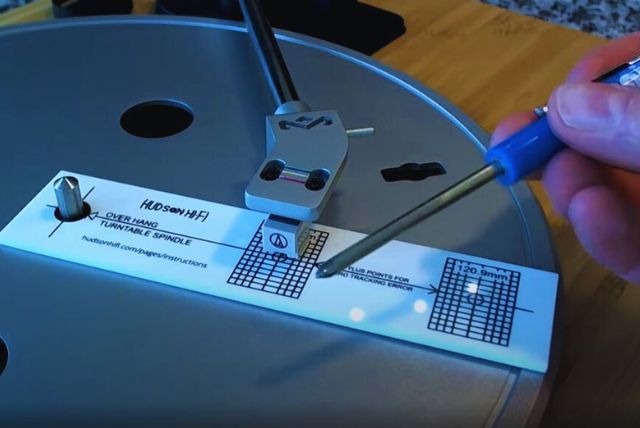
Installing a cartridge is not just tightening the screws of the cartridge on the tonearm. It requires perfect alignment so that the stylus can easily track the grooves, or else you will experience distortion or muffled sound.
If your turntable has an overhang gauge, use the markings to align the cartridge. You can also use a cartridge protector to align your turntable’s cartridge.
Inappropriate tracking force and anti-skate setting
Tracking force is the pressure a stylus or a needle exerts on the record surface. If the downward tracking force is too high or too low, it can distort sound.
Another thing to keep in mind is the anti-skate, which helps to keep the stylus centred in the groove to avoid distortion.
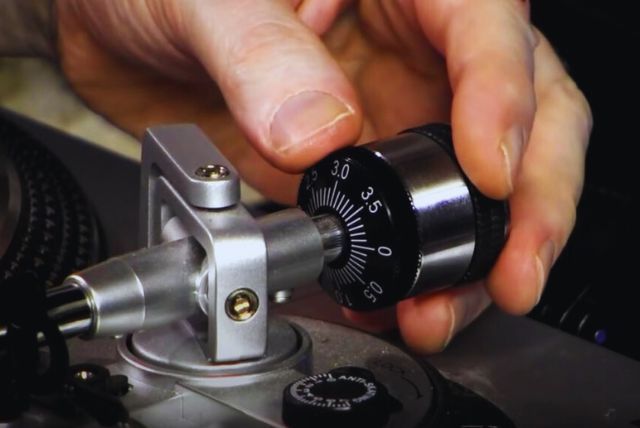
To properly set the downward tracking force and anti-skate setting, you can refer to your turntable manual and make adjustments accordingly.
Issue with the Amplifier or speakers
Poorly configured or malfunctioned amplifier or speakers can also distort sound.
Some amplifiers come with options to adjust the Equalizer settings. A misconfigured equalizer can cause distortion in sound. But you don’t need to worry about it. Simply reconfigure the EQ with the appropriate settings and you are done.
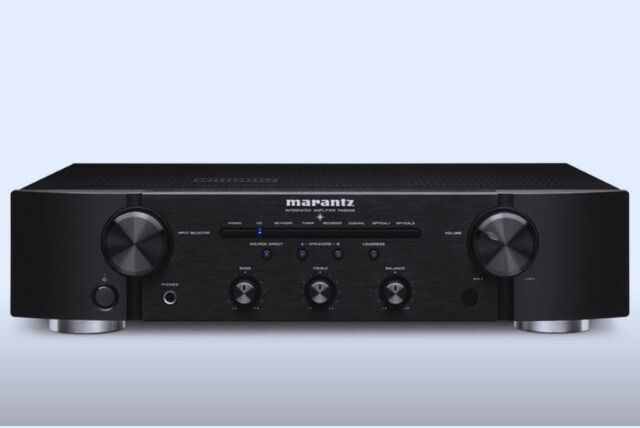
If the problem persists and you need to distinguish whether the problem is with the amplifier or the speaker, start by plugging in a headphone; if the sound is more precise on the headphone, the issue is with the speakers.
The same can be repeated by plugging a headphone directly into the preamp. If the sound is clear at the phono stage but has issues at the amplifier stage, the issue is with the amplifier.
Also, check that all the cable connections to the external amplifier or speakers are secure and not damaged. Loose connections can distort sound as well.
Final Beat
Sound distortion is one of the most annoying things you can experience while playing vinyl records. While there are different reasons that can cause it, and most are already covered, there could be times when even after following all the fixes, you still may not be able to fix the distortion. Then, I recommend taking it to a turntable repair shop because sometimes, getting it diagnosed by an expert can save you countless hours.
Also, do let me know in the comments if the solutions helped you or if you discovered a different fix that worked for you.
Till then, keep spinning your favourite records and keep enjoying the music!



My record player was make weird sound from past few days and it made me worried. Upon searching on google, I reached your blog.
After reading your blog post and thoroughly analyzing all the things you mentioned, I found out that the problem was my record player stylus.
Thanks a ton for this valuable piece of information!
Thanks for the kind words, Robert. I am glad my blog post helped you fix your record player. 🙂
Merhaba,
Plaklarım yere düştü ve hepsinden adeta bir bebek sesi gibi ses çıkıyor. Herhangi bir çatlak veya kırık yok. Konu hakkında yardımınızı rica ederim.
Sanırım bunun nedeni plağın eğilmiş olması olabilir. Daha fazla açıklık için yazdığım bu makaleye göz atabilirsiniz:
https://turntabletrends.com/how-to-fix-a-warped-vinyl-record/
English Translation:
I believe it could be because the record is warped. You can check out this article I’ve written for more clarity:
https://turntabletrends.com/how-to-fix-a-warped-vinyl-record/
🙂